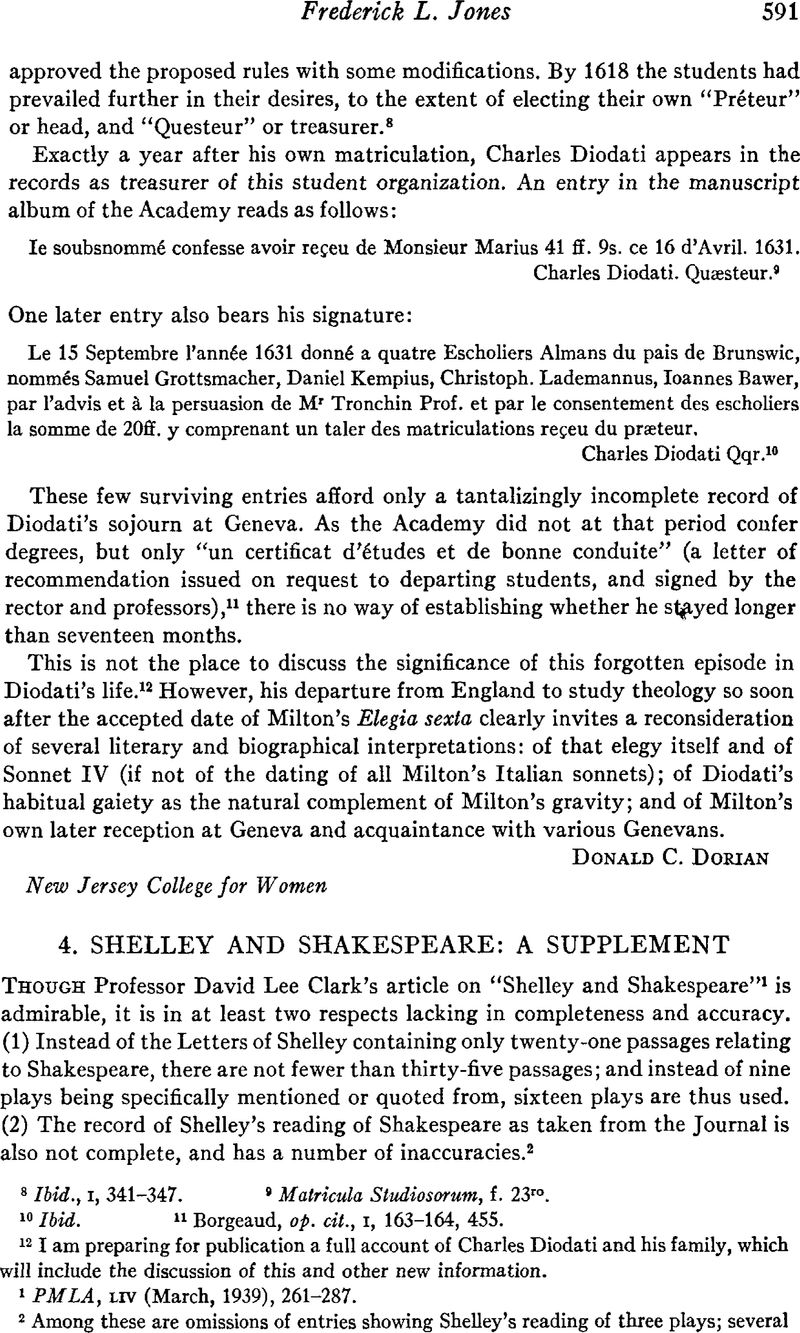Article contents
Shelley and Shakespeare: A Supplement
Published online by Cambridge University Press: 02 December 2020
Abstract

- Type
- Comment and Criticism
- Information
- Copyright
- Copyright © Modern Language Association of America, 1944
References
1 PMLA, liv (March, 1939), 261–287.
2 Among these are omissions of entries showing Shelley's reading of three plays; several wrong dates (e.g., Aug. 28 and Sept. 4, 1816 for Aug. 27 and Sept. 4, 1814); and the inclusion of three entries that do not appear in the Journal at all. The curious may determine the specific errors by a comparison of the journal entries in this paper with Clark's summary.
3 In the Julian Edition of Shelley's Letters, many of the quotations from Shakespeare are unidentified; the Index contains only 11 references to Shakespeare, and King Lear is the only play listed.
4 Professor Clark does not mention: Hamlet, Henry VIII, (Othello), The Merchant oj Venice, Titus Andronicus, Henry IV, Pt. ii, Richard III.
5 Professor Clark's summary omits: Henry IV, Pt. ii (?), Henry VI (given as Henry IV by Clark), Troilus and Cressida.
6 Professor Clark has very kindly permitted me to make the following additions and corrections. Items 1–3 are his own contributions. (1) Add: 1817, Feb. 11, Journal:—“We go to the play—see the ‘Merchant of Venice’. ”(i, 193.) (2) Add “aloud ”at the end of the Journal entry for 1818, Aug. 10, 11. (3) Add: 1819, Sept. 21, To Peacock:— “He [Calderon] exceeds all modern dramatists, with the exception of Shakespeare, whom he resembles, however, in the depth of thought and subtlety of imagination of his writings, and in the rare power of interweaving delicate and powerful comic traits with the most tragical situations, without diminishing their interest. ”(x, 83.) (4) Eliminate the Journal entry for 1820, Sept. 26, and Troilus and Cressida from the summary and note 5. Mary alone read this play. (5) Change “thirty-five passages ”in paragraph one, line 4, to “thirty-nine passages. ”In the recount this note is considered.
- 2
- Cited by


